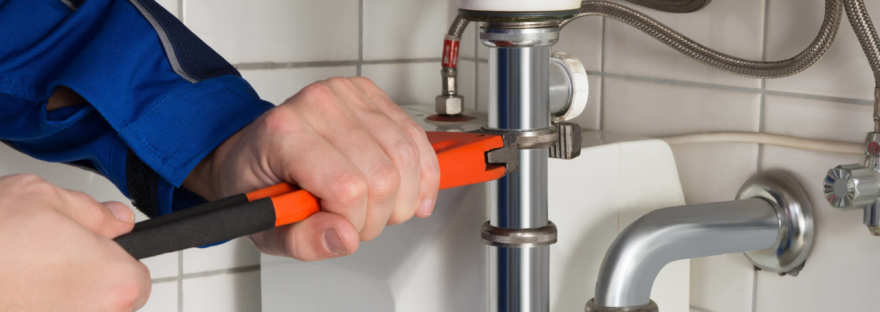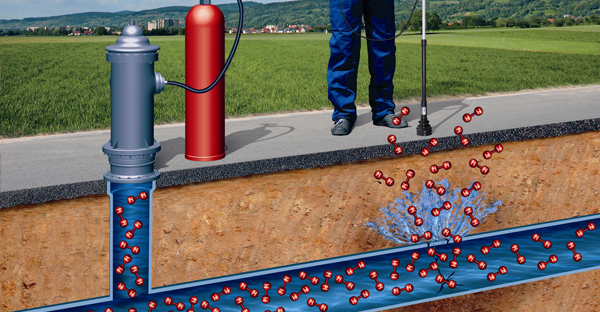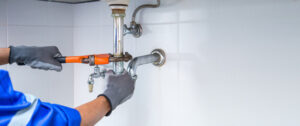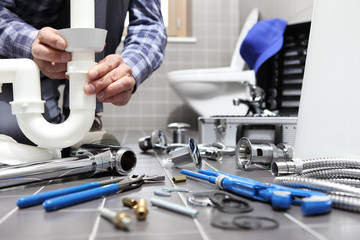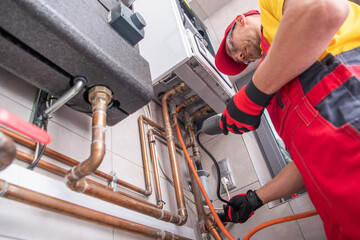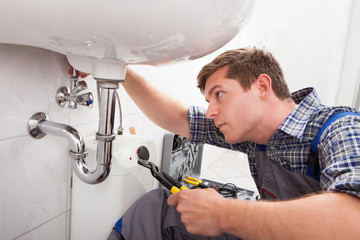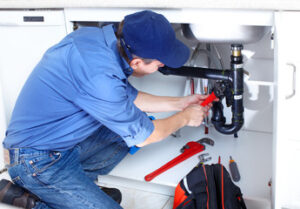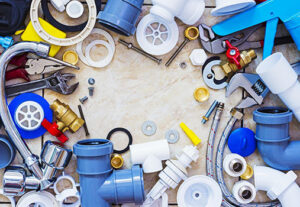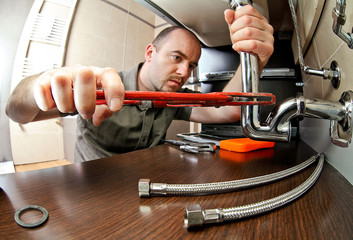Plumbing is the network of pipes that brings fresh water into homes and buildings and carries wastewater and waste products away. Plumbing regulations ensure safe, clean drinking water and efficient drainage systems.
When fixing or replacing plumbing, it is best to leave the work to professional plumbers. Even a small leak or clog can cause extensive damage if not dealt with promptly. Contact Holmes Plumbing and Drain now!
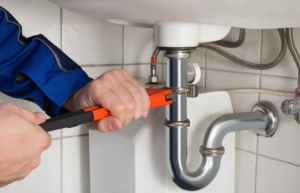
The pipes that bring water to your faucets and drain waste away to your septic or sewer system have evolved over the years. The galvanized iron or steel pipes that were common in older homes have given way to more modern plumbing solutions such as polyvinyl chloride (PVC) and copper piping. This guide will break down the different kinds of pipes in your home, how to recognize them and what kind of maintenance they need to stay in top condition.
Pipes are hollow sections of a material that are used to convey fluids and gases, slurries or masses of small solids. Typically, they are designed for a specific application and may be constructed from a variety of materials depending on the environment and the purpose of the pipe. The term “pipe” is often used to refer to a system of plumbing but it may also be applied to other kinds of conveyance systems such as electrical power lines, pneumatic tubing or industrial process piping.
Some of the most popular pipes for residential plumbing are made from plastic. PVC pipes are known for their versatility and lightweight build. They are durable, resistant to blockage and can withstand high levels of pressure. PVC is also an environmentally friendly solution.
Stainless steel pipes are another common choice for household plumbing. They are more expensive than other types of pipes but they are strong and corrosion resistant. They are a good choice for areas that may be exposed to salt water or other harsh conditions.
Other less popular plumbing pipes include cast-iron and ductile-iron pipe, which are used for steam and hot water heating systems. Lead piping is still used for some plumbing applications, including drains and venting. Cast-iron and ductile-iron are strong, weldable, machinable and very long-lasting, but they are not as versatile as other pipe materials.
Other pipes that are no longer in wide use include steel, which is generally used for non-potable water and drainage. Galvanized steel is a cheaper option but it can rust, which may affect the taste and quality of your drinking water. Older homes with steel pipes may also have galvanized joints that are vulnerable to corrosion and leaks.
Fittings
Fittings are smaller parts of the piping system that help to control and change direction, size and other variables within a pipe. They can be used to help change the flow of water, provide options for emergency shut-off or simply to connect different components together without needing to solder, glue or braze. The main types of fittings in plumbing include elbow, tee, cross, reducer, union, nipple, plug & cap, and adapters.
Elbows are the most common type of plumbing fitting. They come in various shapes and sizes. Street elbows have female and male threaded ends that can be used to join varying pipes or fittings together. They are typically available in a range of angles including 90 and 45 degrees. A hex elbow has a hex head and can be screwed on to a pipe with a wrench. This type of elbow is often used for venting or connecting vertical drains to horizontal ones. A long-sweep elbow has a longer radius than traditional straight or angled elbows. This helps to keep turbulence at a minimum and reduce deposition of entrained solids. A wye is a special type of crossing that is typically used to connect one pipe to another in a way that minimizes wastewater from one side flowing into the other. It is also commonly used to tie horizontal drains to vertical stacks of waste pipes.
Couplings are essentially a small collar that can either slip on to the end of a pipe or be threaded onto the outside of a fitting. This type of fitting can be used to join two pipes together or can be attached to a flange for additional support and strength. The couplings are available in a wide variety of sizes and materials including acrylonitrile butadiene styrene (ABS plastic), copper, chrome-plated brass, PVC, chlorinated polyvinyl chloride (CPVC), and malleable iron.
A nipple is similar to a coupling, but it has a single port that has a circular shape. This is used to connect a line of pipes to a valve, drain or other equipment. Nipples are typically made out of copper or PVC and can be joined by soldering, gluing or threading. Adapters are designed to attach between different types of fittings and can be used for joining a metric hose end to a BSPP fitting or a male adapter to a female adapter.
Pipe Cleanouts
Cleanouts are an important component of a plumbing system, providing easy access to the main sewer line for cleaning and inspection. Usually, a home will have one or more cleanouts located along the lateral sewer lines and on various drain pipes. Cleanouts give plumbers a way to snake or auger into the pipes without having to break through the foundation of the house or remove any floor or wall coverings, which can be very expensive and messy.
Cleanouts can also help to alleviate any problems with sewage backing up into a home. This can happen if the main line becomes clogged, as the sewage needs to go somewhere. With cleanouts, the sewage can escape outside instead of backing up into tubs or showers or under toilets. This can be very dangerous for the health and safety of a household.
When it comes time to clear a clog, the first thing a homeowner should do is find the drain cleanout. This is usually a capped pipe sticking out of the ground in the backyard, or in some cases it can be inside a basement or crawlspace. Depending on the age of the house, the cleanout may be obvious, or it might be a challenge to locate. For example, older homes with cast iron pipes might not have cleanouts.
If you can’t find the cleanout, try looking in areas where drainage pipes are clustered together. For example, a bathroom might have several drains connected to one another, or there might be a utility room that doesn’t get used much. In some older homes, the cleanout might be behind a toilet or in the garage.
Once you’ve found the cleanout, it’s time to open it up. You’ll need a few tools for this, including safety glasses, gloves, a pipe wrench and a sewer snake. If the cap is stuck on, try spraying it with a lubricant like WD-40, and then gently prying it loose.
Once the cap is removed, the plumber can start snake or auger into the drain line. If the clog is a serious one, the plumber might have to dig or trench around the pipe to reach it. This is not a job that should be done by a DIYer, as it could lead to serious damage and injury. If the clog can’t be cleared, it’s likely that the plumber will have to dig up the entire sewer line and replace it, which can be very costly.
Installation
Whether for commercial or residential properties, plumbing is crucial to perform everyday activities like bathing, washing, cooking and cleaning. It also helps to keep our environment clean and hygienic by transporting wastes and sewage safely away from buildings. Plumbing is a complex system that requires regular maintenance and repair to function properly. Licensed plumbers have the skills and knowledge to ensure that all components are working properly and meet local codes and standards.
Before starting any plumbing work, a plumber must assess the job site to determine the type and size of pipes required. They must also consider any existing plumbing systems to avoid reworking already completed pipes. Then, they can plan the routing of the pipes, including any fittings and drains needed. Plumbing design takes into account a variety of factors, including water availability and quality, fixture placement, and building codes and standards. It also focuses on energy efficiency, with considerations for both hot and cold water systems.
Once the plumbing system is designed, the plumber will begin installation. This includes laying out and cutting pipes, and connecting them to both the water supply and drainage systems. Then, they can install fixtures like sinks, toilets and showers. Finally, they can test and inspect the plumbing for any leaks or other issues.
Aside from piping, plumbing installation also involves venting systems. These are used to prevent sewer gases from entering living spaces and can be connected to drainpipes or septic tanks. They can also be installed separately from piping, and they may include valves, fittings and caps.
Lastly, a plumbing system must be installed according to local codes and regulations. This includes ensuring that all pipes are properly secured and insulated, and that the water heater is in compliance with energy efficiency requirements. In addition, plumbing regulations focus on water conservation and reducing the risk of waterborne diseases.
As such, it is important to hire a professional to handle all plumbing installations and repairs. Licensed plumbers have the training, experience and tools to ensure that your plumbing system is installed correctly, works efficiently and meets all applicable codes and standards.
